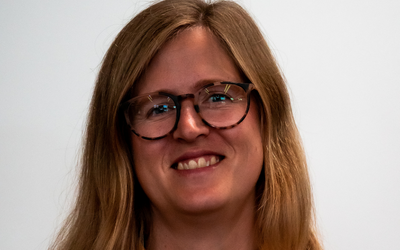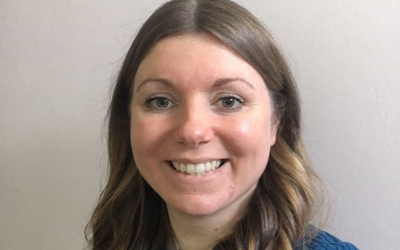You are here
- Home
- External Events and Publications
- Biennial APS Conference
- APS Conference 2023
- Conference programme
- “The bridge between school and uni, that’s the bit that’s missing”: Improving Access to Higher Education for Care-Experienced Students
“The bridge between school and uni, that’s the bit that’s missing”: Improving Access to Higher Education for Care-Experienced Students
Hannah Bayfield and Lena Smith, Cardiff University
Email: bayfieldh@cardiff.ac.uk
Session recording
Presentation
Abstract
International research has demonstrated that care-experienced young people (CEYP) achieve poorer educational and lifecourse outcomes than their peers (Berger et al, 2015; Jackson, 1994; 2010; Mannay et al, 2017; O’Higgins et al, 2015; Sebba et al, 2015; Vinnerljung and Hjern, 2011). This inequality has been attributed in part to multiple placement moves and a potential lack of focus upon educational experience (Evans et al, 2016). Based on statistics from 2012, the Office for Fair Access (OFFA, 2017) reported that whilst 60% of the general population of school leavers in the UK entered higher education (HE), only 6% of care leavers went to university (Allnatt, 2018) (although this is likely to be an underestimate (Harrison, 2020; Harrison and Waller, 2018)).
With rates of children taken into care increasing in Wales (Welsh Government, 2021; Elliott, 2020), there is value in understanding how best to support this group with their educational transitions. Based on pan-Wales research into access to, and success in, HE for CEYP (Bayfield, 2023 [forthcoming]), this paper presents the experiences of 13 young people in Wales regarding educational transitions and the support they have – or have not – had when it comes to HE. Based on these experiences, recommendations are made for improving transition support and better signposting existing support. CLASS Cymru (Care Leavers’ Activities and Student Support Wales) is used as an example of how to action the recommendations from care experienced people and those who support them.
The paper is drawn from a wider research project examining the support Welsh Higher Education Institutions (HEIs) provide to care-experienced young people prior to and during their time in Higher Education (HE) with the aim of closing the access gap faced by this group. Findings suggest the importance of information sharing in order to share best practice as well as identify common areas for improvement. As such, this shared presentation brings together academic and practitioner colleagues to discuss the ways in which such collaboration can improve support.
References
Allnatt, G. (2018) ‘Transitions from care to Higher Education: A case study of a young person’s journey’ in Mannay, D.; Rees, A. and Roberts, L. (eds) Children and Young People ‘Looked After’? Education, intervention and the everyday culture of care in Wales. Cardiff: University of Wales Press
Bayfield, H. (2023, forthcoming) Exploring support for care experienced young people in Higher Education in Wales. Cardiff University: CASCADE
Berger, L.M., Cancian, M., Han, E., Noyes, J. and Rios-Salas, V. (2015) ‘Children’s academic achievement and foster care’ Pediatrics 135(1) pp. 109
Elliott, M. (2020) ‘Child welfare inequalities in a time of rising numbers of children entering out-of-home care.’ British Journal of Social Work 50(2), pp. 581-597.
Evans, R., Hallett, S., Rees, A. and Roberts, L. (2016) ‘The acceptability of educational interventions: Qualitative evidence from children and young people in care’ Children and Youth Services Review 71 pp. 68-76
Harrison, N. (2020) ‘Patterns of participation in higher education for care-experienced students in England: why has there not been more progress?’ Studies in Higher Education, 45:9, 1986-2000
Harrison, N. and Waller, R. (2018) Challenging discourses of aspiration: The role of expectations and attainment in access to higher education.’ British Educational Research Journal 44:5 pp. 914-938
Jackson, S. (1994) ‘Educating Children in Residential and Foster Care’ Oxford Review of Education 20(3) pp. 267-279
Jackson, S. (2010) ‘Reconnecting care and education: from the Children Act 1989 to Care Matters’ Journal of Children’s Services 5(3) pp. 48-60
Mannay, D., Evans, R., Staples, E., Hallett, S., Roberts, L., Rees, A. and Andrews, D. (2017) ‘The consequences of being labelled ‘looked-after’: Exploring the educational experiences of looked-after children and young people in Wales.’ British Educational Research Journal 43(4) pp. 683-699
O’Higgins, A., Sebba, J. and Luke, N. (2015) What is the relationship between being in care and the educational outcomes of children? Oxford: Rees Centre for Research in Fostering and Education
OFFA (2017) Topic Briefing: Care Leavers. London: The National Archives
Sebba, J., Berridge, D., Luke, N., Fletcher, J., Bell, K. and Strand, S. et al. (2015) The educational progress of children looked after in England: Linking care and educational data. Oxford: Rees Centre for Research in Fostering and Education
Vinnerljung, B. and Hjern, A. (2011) ‘Cognitive, educational and self-support outcomes of long-term foster care versus adoption: A Swedish national cohort study’ Children and Youth Services Review 33 pp. 1902 - 1910
Welsh Government (2021) Experimental Statistics: Children looked after by local authorities, 2020-21. Wales: Statistics for Wales
Hannah Bayfield
Research Associate, CASCADE, Cardiff University
Hannah Bayfield is an early career researcher based in CASCADE – the Children’s Social Care Research and Development Centre – in Cardiff University. Since October 2019 she has been working on a Health and Care Research Wales funded post-doctoral fellowship, exploring care experienced young people's opportunities to access and succeed in higher education.
Prior to her time at CASCADE, she worked for Cardiff University's Widening Participation team, heading up various projects including mentoring programmes for young people with autism spectrum conditions, and care-experienced young people. Her research interests include the education of care-experienced young people, child and adolescent mental health, and children's residential care (including secure care).
Lena Smith
Transitions Officer, Student Life, Cardiff University
Lena Smith has worked in higher education in Wales since 2008 and has recently changed from being a Student Money Advisor at the University of South Wales to the dedicated contact for priority groups at Cardiff University, where she supports a range of students from care experienced and estranged students to asylum seekers, young carers and veterans.
She is the Chair of the CLASS Cymru network (Care Leavers’ Activities and Student Support Wales) and works to remove barriers for priority groups in higher education in Wales.

